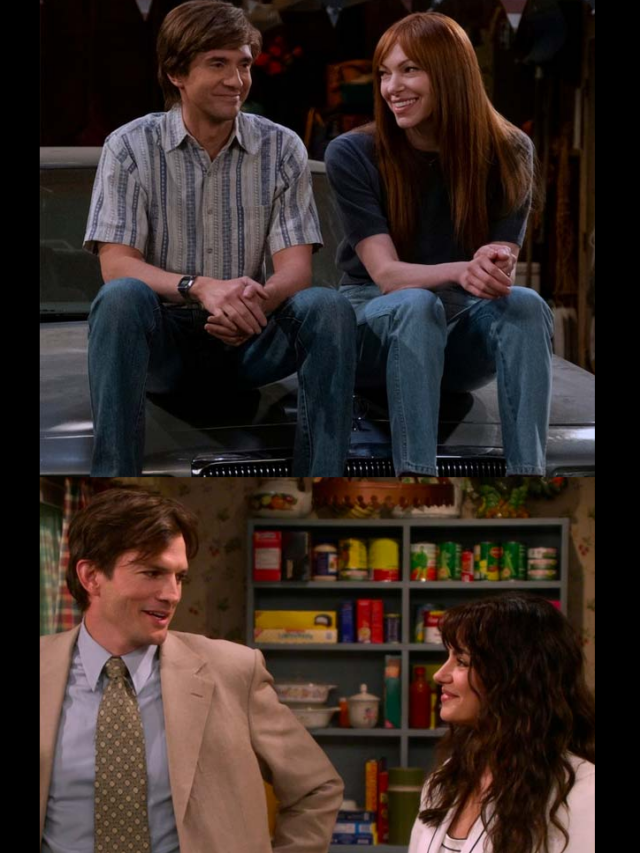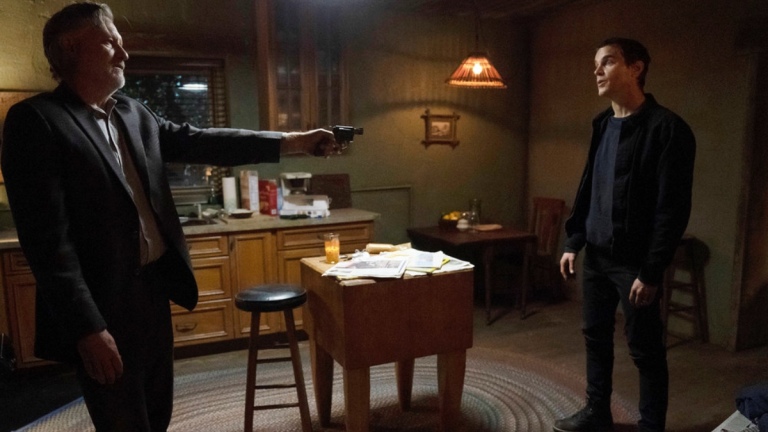Plans for miniseries that decide to become standard series frequently run the risk of losing their meaning. The detective programme on USA Network is one example of this. There was a serious possibility that the term “The Sinner” would become obsolete when it decided to depart from the plot of the novel that served as its inspiration and tell fresh tales about detective Harry Ambrose.
This issue was resolved by The Sinner by ensuring that each of its case studies will be as committed to sin as Cora Tannetti was in season 1. (Jessica Biel). In fact, Jamie, the series’ main character from season three of The Sinner, may be its biggest sinner to yet.
Jamie is the epitome of what happens when college lessons on Nietzsche go wrong, as superbly portrayed by Matt Bomer. The first episode of The Sinner season 3 features Jamie as a person who seems typical (though unusually attractive). He is a husband, a teacher at a famous prep school, and he is expecting his first child. However, when Nick Haas (Chris Messina), an old college friend, stops home for dinner, it unleashes a primitive and dangerous force within of him.
The Sinner season 3 (now available on Netflix) doesn’t save Jamie’s motivations till the end of the season. Early episodes actually reveal a surprising amount of Jamie’s evolution. Jamie and Nick used to be edgelords in college, odd, dark brats who were fascinated on ideologies of the self. Jamie and Nick are enthralled by philosophical theories that assert that God is dead and that the only meaning in the world is what you create of it, from Aleister Crowley to Friedrich Nietzsche.
These ideas drive the pair to take risks throughout their lives, including jumping off bridges, burying oneself alive, and cutting themselves in the hand in public. Nick’s most recent scheme is to assassinate local artist Sonya Barzel (Jessica Hecht). This strategy is thwarted when Nick dies in a terrible vehicle accident. But after seeing Nick’s death, Jamie becomes more and more obsessed with death.
By the season 3 conclusion, Jamie has killed three people, including Nick, a fortune teller at a hip Manhattan party, and the precinct captain of detective Harry Ambrose. All of this culminates in the anticipated final run-in with Harry. This conclusion is really a formality. In fact, having too much time to tell its plot causes The Sinner season 3 to suffer in many ways. Jamie frequently approaches Harry, says “you and I are not so different,” and then leaves. But this final meeting is incredibly poignant and skillfully conveys the season 3 theme.
Jamie explains to Harry that his goal in playing the homicidal fortune-teller game was to make Harry realise that they are the same. The season provides ample proof that Harry and Jamie have similar philosophical viewpoints, or at the very least, some of the same nihilism. Harry afterwards appears to corroborate that by shooting Jamie in the stomach. Then things start to become interesting.
Jamie starts to unravel as opposed to keeping up his Nietzschean vigour and praising Harry for a job well done as a murderer. He begs Harry to assist him as he sobs like a child. Jamie repeatedly asks Harry if the ambulance is coming as Harry bends down to treat his injuries. Despite making a huge deal out of the void he feels inside and his inability to sense the presence of any god, Jamie clings to life in an almost embarrassing way.
When Jamie ultimately passes away, Harry is visibly shaken by the event.
“What did he turn out to be like?” Sonya is curious.
Despite knowing the risks Jamie posed, Sonya had been seduced by his lethal aura and had almost invited him into her home twice. She is obviously anticipating him to have had a revelation at the conclusion—something that would have clarified why he was so alluring and mysterious. Harry, though, can only reply honestly.
He says, “Scared,” and starts to cry.
Harry sobs as a result of his own fear. Harry believed Jamie to be a kindred spirit. Both people experience a lack of God (or any other higher purpose) in their lives. Harry most likely experienced it as a result of the horrific aspects of his work. For Jamie, it was simply a result of his undergrad Philosophy 101, which he took a little too seriously. But regardless of the justification, both men had a profound unhappiness and emptiness that could only be filled by doing something drastic.
But in the end, killing didn’t “cure” Jamie. Neither did passing away. Jamie’s fear of dying was the only thing that his death revealed to him. Harry Ambrose and the characters in The Sinner aren’t driven by hatred, discontent, or even sin itself. It is merely dread. The third season of The Sinner is identical to the first two and, frankly, to any other detective drama. All of it stems from a fear of the unknown. That didn’t occur to Jamie until it was too late. Harry should be able to apply that knowledge to the following instance.
Netflix now has The Sinner accessible for streaming.
Our Team DCS includes 5 different writers proficient in English and research based Content Writing. We allow them and encourage them to follow the Entertainment news all day long. Our posts, listicles and even the exclusives are a result of their hard work.









